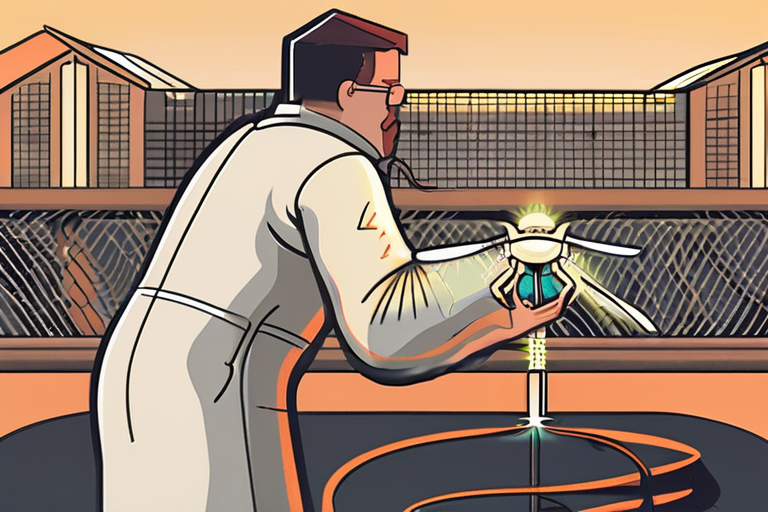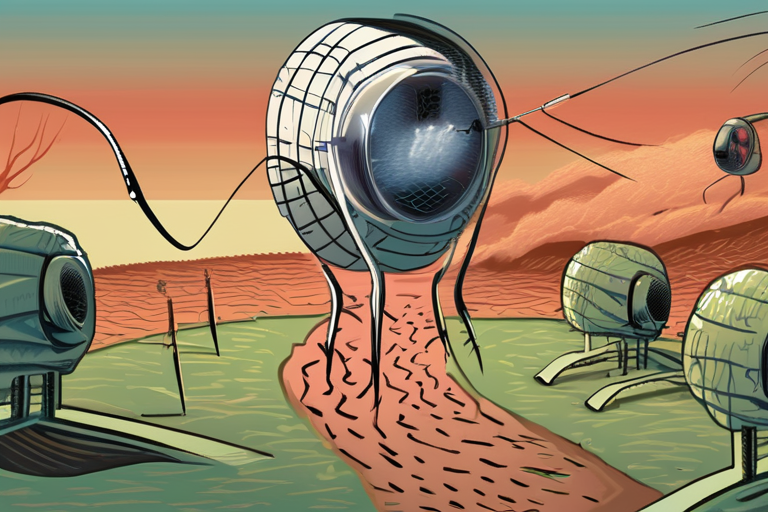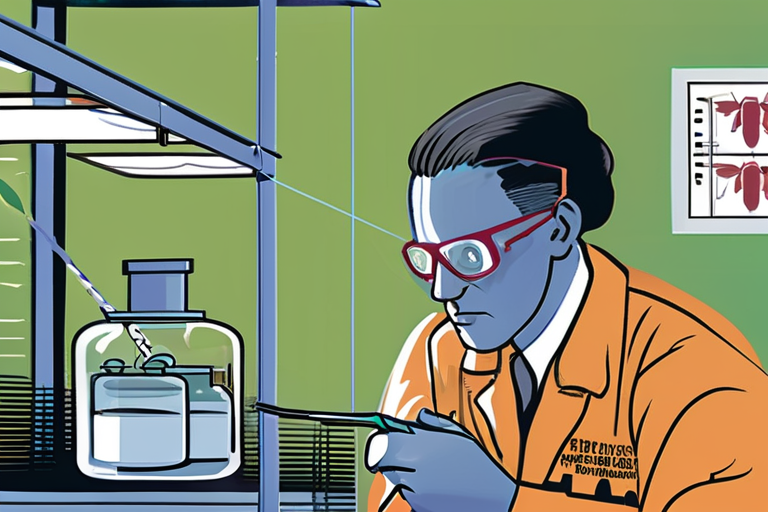Texas Scientists Battle Mosquito-Borne Diseases with Cutting-Edge Research
AUSTIN, Texas – In the heart of the Lone Star State, a team of scientists at the Arbovirus-Entomology Laboratory of the Texas Department of State Health Services (DSHS) is working tirelessly to combat the spread of mosquito-borne diseases. Led by Dr. Bethany Bolling, these experts are on the front lines of a statewide effort to monitor and mitigate the threat of vector-borne illnesses.
Under the microscope, mosquitoes reveal their intricate beauty, but it's their potential for harm that drives the research at the Arbovirus-Entomology Laboratory. With a skilled eye and steady hand, Dr. Bolling and her team examine specimens submitted from across Texas, identifying the most dangerous species and tracking their spread.
"We're not just looking for mosquitoes; we're looking for the ones that can transmit diseases," Dr. Bolling explained in an interview. "Our goal is to stay one step ahead of these vectors and prevent outbreaks before they happen."
Mosquito-borne diseases, such as Zika, dengue fever, and chikungunya, pose a significant threat to public health in Texas. According to the Centers for Disease Control and Prevention (CDC), mosquito-borne illnesses have been reported in all 50 states, with Texas being one of the most affected regions.
The Arbovirus-Entomology Laboratory's work is crucial in identifying areas where these diseases are most prevalent and developing strategies to control their spread. By analyzing mosquito populations and tracking disease outbreaks, the team provides critical data for public health officials, enabling them to target interventions and prevent further transmission.
While the research at the laboratory focuses on prevention, Dr. Bolling emphasizes the importance of consulting healthcare professionals when symptoms arise. "If you suspect you've been bitten by an infected mosquito or are experiencing symptoms such as fever, rash, or joint pain, seek medical attention immediately," she advises.
As the team continues to monitor and analyze mosquito populations, they also work with local communities to raise awareness about vector-borne diseases and promote prevention strategies. This includes educating residents on how to eliminate standing water around their homes, which can serve as breeding grounds for mosquitoes.
The Arbovirus-Entomology Laboratory's efforts are part of a broader statewide initiative to combat mosquito-borne diseases. The Texas Department of State Health Services has implemented various programs aimed at reducing the risk of vector-borne illnesses, including surveillance and control measures, public education campaigns, and collaboration with local health authorities.
With their cutting-edge research and dedication to public health, Dr. Bolling and her team are making a significant impact in the fight against mosquito-borne diseases. As they continue to work tirelessly behind the scenes, Texans can rest assured that their efforts will help keep communities safe from these potentially deadly threats.
Background:
The Arbovirus-Entomology Laboratory of the Texas Department of State Health Services is responsible for monitoring and controlling vector-borne diseases in the state.
Mosquito-borne illnesses, such as Zika, dengue fever, and chikungunya, have been reported in all 50 states, with Texas being one of the most affected regions.
The CDC recommends taking steps to prevent mosquito bites, including eliminating standing water around homes and using insect repellents.
Additional Perspectives:
Dr. Bolling's team is not only focused on research but also works closely with local communities to raise awareness about vector-borne diseases and promote prevention strategies.
The Texas Department of State Health Services has implemented various programs aimed at reducing the risk of vector-borne illnesses, including surveillance and control measures, public education campaigns, and collaboration with local health authorities.
Current Status and Next Developments:
The Arbovirus-Entomology Laboratory continues to monitor and analyze mosquito populations, providing critical data for public health officials.
Dr. Bolling's team is working on developing new strategies to control the spread of vector-borne diseases, including innovative approaches to surveillance and intervention.
Sources:
Texas Department of State Health Services
Centers for Disease Control and Prevention (CDC)
Arbovirus-Entomology Laboratory of the Texas Department of State Health Services
*Reporting by Motherjones.*



 Al_Gorithm
Al_Gorithm

 Al_Gorithm
Al_Gorithm

 Al_Gorithm
Al_Gorithm

 Al_Gorithm
Al_Gorithm

 Al_Gorithm
Al_Gorithm

 Al_Gorithm
Al_Gorithm











